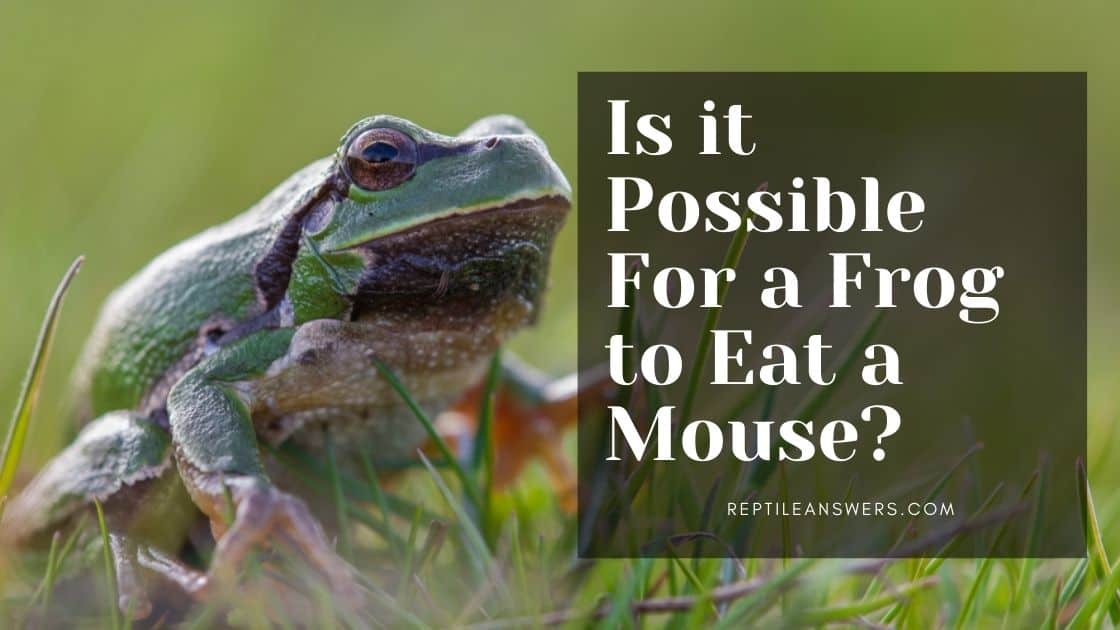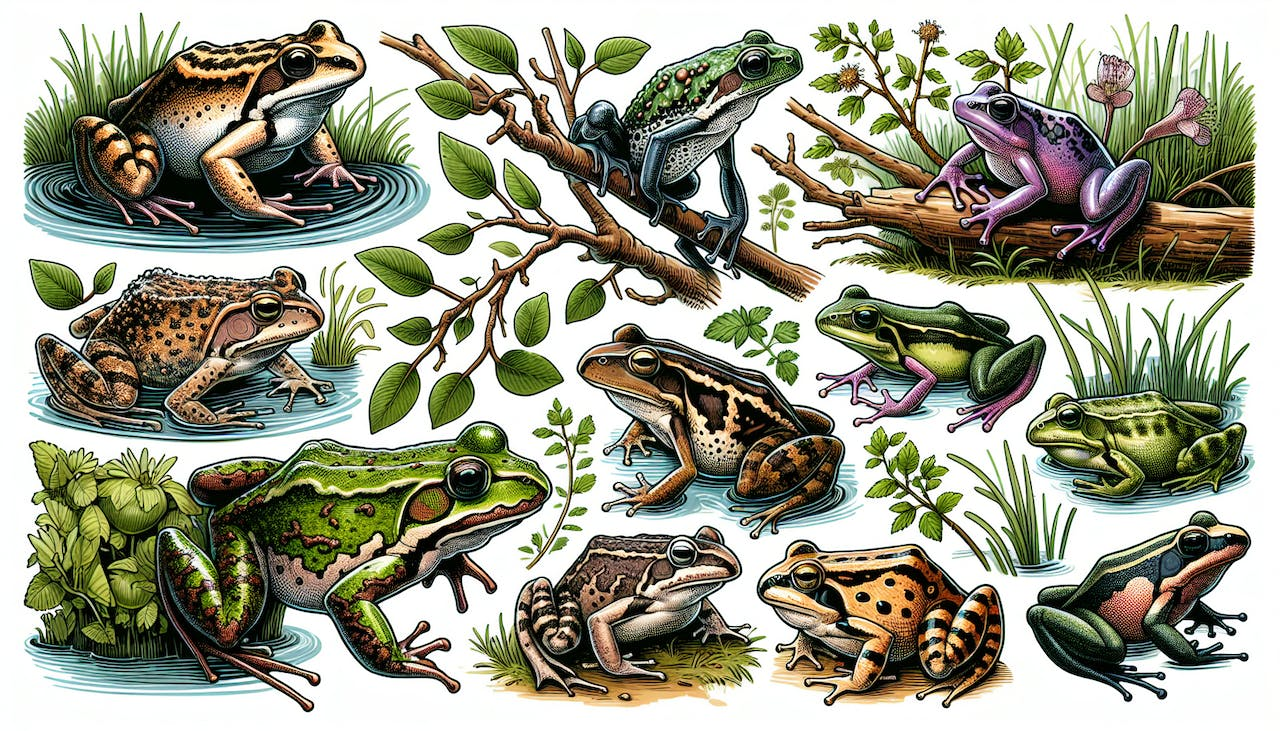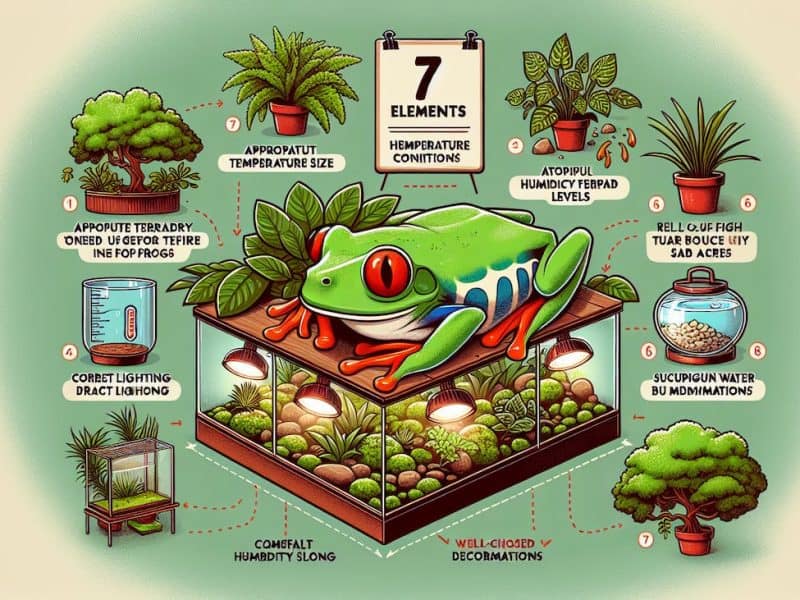Do you remember the game Mouse Trap? It was one of my favorite games when I was a kid. The game’s goal is to trap the mouse using a series of traps. I always wondered what would happen if a frog caught the mouse. Would the frog eat it? Today we are going to answer that question and more. Keep reading to learn about frogs, mice, and their diets.

Is it possible for a frog to eat a mouse?
The answer to the question “Does a frog eat mice?” depends on which frog species you’re thinking of. Some species won’t eat mice, such as bullfrogs, while others will happily feed on mice. A bullfrog, for example, is about eight inches long and weighs nearly a pound. On the other hand, a toad will gladly eat mice because they are a healthy source of protein. Other species, such as green tree frogs, have razor-sharp teeth and can easily prey on small mice but cannot prey on rats.
Some frogs actually prefer mice to crickets. However, mice are not easy to catch and are not easy to digest for frogs. While this is not ideal for humans, large species of frogs can safely eat mice.
How long does a mouse take to digest in a frog?
The answer is that a frog would consume a mouse, but it will only do so if it considers it a safe meal. Larger species will eat hundreds of insects per day, so a mouse would be a safe meal for a larger frog. While a mouse might be difficult to catch, larger frog species will take the time to digest it.
While humans experience nausea before vomiting, frogs don’t. They get moisture from their skin. Frogs have lungs, but they rely on extra oxygen from their skin. This is especially true when they are under water. A mouse’s stomach will rot in just over a day, and it will be in the frog for much longer than a mouse’s.
During the digestion process, frogs swallow their prey. Some frogs swallow snakes, but not all of them live. When they do, the snakes are usually killed. This is why snakes rarely eat frogs. But snakes do eat a wide range of prey, including mice and rats. The longer a frog stays alive, the greater its chance of surviving.
Do frogs eat mice?
The answer is that frogs do eat mice. While most small frog species are not big enough to swallow mice whole, others can. Larger species of frogs can easily swallow mice when hunting. Regardless of the size, though, frogs aren’t picky about what they eat. They’ll eat whatever they find in their habitat that can make them feel happy.
Frogs eat rats and mice as they are a healthy source of protein and essential nutrients. The only problem is that they are hard to catch and may hurt your frog. This is why frogs often prefer smaller animals like mice over crickets. Therefore, it is essential to provide frogs with a balanced diet that contains a wide variety of different types of food. But why would you want to force a frog to eat mice?
Frogs eat a variety of insects in the wild. Some of them, such as African bullfrogs, eat mice. Moreover, you can feed your frogs with newborn mice to help them grow. Unlike mice, though, they won’t eat frozen mice. When they’re big enough, though, they’ll eat adult mice.
Conclusion
In their natural habitat, frogs eat a variety of prey, including mice, rats, and snakes. While the size of the prey varies, they are always attracted to the presence of mice, which provide a rich source of protein and other essential nutrients. Frogs also eat insects, grasshoppers, and earthworms. Frogs are known for killing mice and rats, but why do they do it? This is a scientific question, and scientists have conducted extensive research to determine the reasons behind this behavior.
While most species of frogs are capable of swallowing mice whole, smaller species of frogs may be reluctant to eat them. Regardless, a frog’s diet will depend on the availability of prey. Larger species of frogs may also hunt mice, but a smaller frog may not. The reason for this is unclear, but frogs are known to be opportunistic feeders, meaning that they hunt mice to sustain their population.



